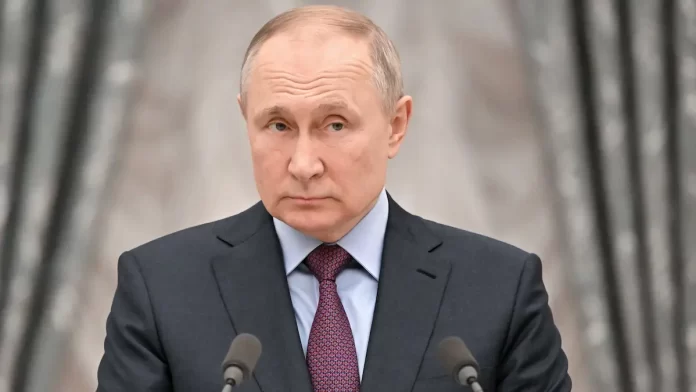In a shocking announcement on state television, Colonel General Andrey Kartapolov, a prominent member of the Russian parliament, on Sunday disclosed that Russia’s mercenary army, Wagner, stationed in Belarus, is prepared to invade the Suwalki Corridor, often referred to as NATO’s “weakest link.”
This bold move has raised global concerns, as it has the potential to escalate tensions and trigger a Third World War.
“Thousands of Wagner troops have arrived in Belarus in recent days.
More were seen today on the road in Russia’s Lipetsk region heading for the landlocked states”, reported the Sun.
The Suwalki Corridor is a strategically vital land strip, approximately 104 kilometers long, that connects Poland and Lithuania.
Situated between the Russian enclave of Kaliningrad and Belarus, it forms the only land route for NATO forces to rapidly reinforce the Baltic states in the event of an attack.
This narrow passage has been a subject of significant geopolitical importance due to its potential vulnerability to aggression.
A Russian move here with state-backed Wagner would likely trigger NATO’s clause 5, setting the military Alliance against Russia.
To understand the gravity of the situation, it is crucial to delve into the historical context.
Following the end of the Cold War and the dissolution of the Soviet Union, several former Warsaw Pact countries, including Poland and Lithuania, sought to strengthen their security ties with the West.
They subsequently joined the North Atlantic Treaty Organization (NATO) to ensure collective defense and deter any potential aggression.
The Suwalki Corridor became of particular significance as it became the only land route linking the Baltic states to the rest of NATO territory.
Its strategic location has made it a potential target for Russian aggression, which has increasingly flexed its military might in the region in recent years.
The threat of an invasion by Russia’s notorious mercenary group, Wagner, stationed in Belarus, has sent shockwaves throughout the international community.
Wagner is known for its involvement in conflicts such as Ukraine and Syria, where it operates as a proxy force for Russian interests.
Its reported readiness to strike the Suwalki Corridor in a matter of hours has raised concerns over the potential outbreak of a Third World War.
Experts suggest that an invasion of the Suwalki Corridor by Russian forces or their proxies would effectively sever NATO’s ability to rapidly deploy reinforcements to the Baltic states.
This would significantly undermine the collective defense of NATO allies and potentially embolden further Russian aggression in the region.
NATO member countries, including Poland and Lithuania, have responded to the threat with heightened vigilance.
They have been actively working to bolster their defenses in the region, reinforcing their military presence and conducting joint exercises with allied forces.
According to Sun Report, “Poland is rapidly rearming due to the threat from Moscow, and Germany is to deploy 4,000 troops permanently in Lithuania as NATO strengthens its presence in the Baltic states”.
Furthermore, they have been urging NATO and other international partners to increase their support and commitment to ensuring the security of the Suwalki Corridor.
The international community is closely monitoring the situation, with diplomats and leaders engaged in intense diplomatic efforts to deescalate tensions.
The potential consequences of an invasion and the subsequent response from NATO member countries are grave, highlighting the delicate balance between maintaining peace and deterring aggression in the region.
As the world holds its breath, the future of the Suwalki Corridor remains uncertain. It is a testament to the evolving nature of global power dynamics and the significance of strategic passages in maintaining international stability.
The coming days and weeks will be critical in determining whether diplomacy can avert a potentially catastrophic chain of events that could alter the geopolitical landscape forever.
